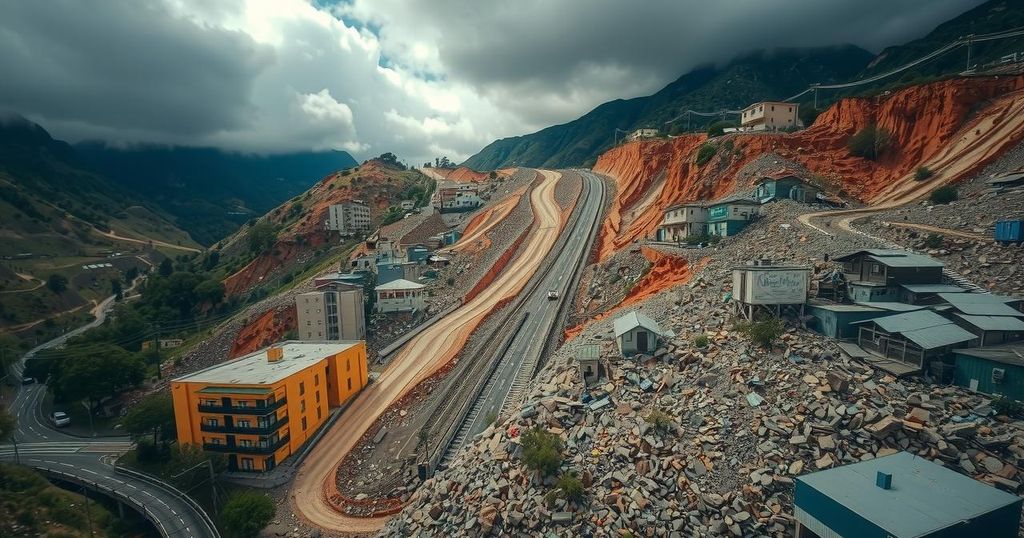A severe landslide in La Paz, Bolivia, impacted around 40 homes following the first rains after an extended drought. Fortunately, no injuries were reported, and six individuals required rescue from the muddy aftermath. This incident raises concerns regarding urban safety in the context of changing weather conditions.
A significant landslide occurred early Sunday morning in a hillside neighborhood of La Paz, Bolivia, impacting approximately 40 homes. This incident follows a prolonged period of drought, marking the first instance of rainfall in the region. Remarkably, no injuries were reported, although six individuals were rescued from the mud-laden site, which posed dangerous conditions. Authorities remain vigilant as they assess the aftermath and potential further risks associated with the changing weather patterns.
The landslide in La Paz is a consequence of destabilization in the soil following an extended drought, which has serious implications for urban infrastructure in mountainous regions. The influx of rainwater can saturate dry soil, often leading to landslides that threaten residential areas. Such geological events highlight the vulnerability of ecosystems in Bolivia, particularly in light of climate change and erratic weather patterns.
In conclusion, the landslide in La Paz has raised awareness regarding the impact of severe weather following droughts on urban safety. The swift response to rescue individuals from the mud underscores the need for preparedness in facing natural disasters. As Bolivia continues to contend with the effects of climate shifts, improving infrastructure and disaster response strategies remains crucial to safeguard the local population.
Original Source: www.indiatoday.in






